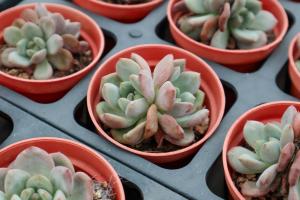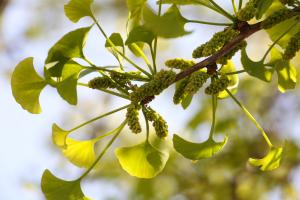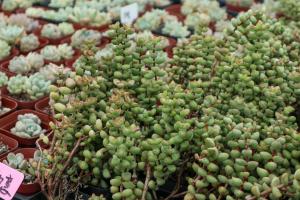Can I Plant Vegetables in Pots?
Planting your own vegetables is a great way to ensure that your food is fresh and healthy. However, not everyone has a sprawling backyard or garden where they can grow their own crops. If you live in an apartment or have limited outdoor space, you might be wondering if it’s possible to grow vegetables in pots. The answer is yes! In fact, planting vegetables in pots is a great way to enjoy homegrown produce, even if you don't have a lot of space.
The Benefits of Planting Vegetables in Pots
Planting vegetables in pots has numerous benefits, such as:
Space-saving: Pots take up less space than traditional garden beds, making them ideal for those with small yards or balconies.
Portability: Pots can be moved around to take advantage of the best growing conditions, such as areas that get more sunlight or shade.
Easier maintenance: Pots can be easier to maintain than large garden beds, as they don’t require as much weeding or digging.
Pest control: Pots can help keep pests and diseases at bay, making them a great option for gardeners who want to avoid using pesticides.
Choosing the Right Containers
When it comes to choosing the right containers for your vegetables, there are a few things to consider:
Size: Choose pots that are big enough to accommodate the root systems of your chosen vegetables. Some vegetables, such as tomatoes and peppers, require deeper containers than others.
Material: Containers can be made of plastic, clay, wood, or other materials. Make sure the material you choose is food-safe and suitable for your climate.
Drainage: Good drainage is essential for healthy plants. Choose containers with drainage holes or add your own holes to ensure that excess water can escape.
Choosing the Right Soil
The soil you choose for your vegetable containers is just as important as the containers themselves. Here are some things to keep in mind:
Nutrients: Choose soil that is rich in nutrients to ensure that your plants have everything they need to grow strong and healthy.
Drainage: Good drainage is important for healthy plants, so choose soil that is well-draining.
pH level: Vegetables prefer soil with a slightly acidic pH level, between 6.0 and 6.5.
Organic matter: Adding organic matter to your soil can help improve its structure and fertility.
Choosing the Right Vegetables
Not all vegetables are suited to growing in pots, so choose your plants carefully. Here are a few vegetables that are well-suited to container gardening:
Tomatoes: Tomatoes are a favorite among container gardeners. They require deep pots and plenty of sunlight, but can produce large yields when grown in the right conditions.
Peppers: Peppers are another popular choice for container gardening. They prefer warm temperatures and require plenty of sunlight.
Herbs: Many herbs, such as basil and parsley, thrive in containers. They require well-draining soil and plenty of sunlight.
Carrots: Carrots can be grown in deep, narrow containers. They require loose, well-draining soil and plenty of sunlight.
Tips for Successful Container Gardening
If you’re new to container gardening, here are a few tips to help you get started:
Water regularly: Containers can dry out quickly, so make sure to water your plants regularly.
Fertilize: Your plants will require regular fertilization to keep them healthy and productive.
Rotate your crops: To avoid soil-borne diseases, it’s a good idea to rotate your crops each year.
Choose the right location: Make sure your containers are located in an area that gets the right amount of sunlight for your chosen vegetables.
Harvest regularly: Regular harvesting can encourage your plants to produce more fruits and vegetables.
Conclusion
Container gardening is a great way to grow your own vegetables, even if you don’t have a lot of outdoor space. By choosing the right containers, soil, and vegetables, and following a few simple tips, you can enjoy the bounty of your own homegrown produce.

 how many times do yo...
how many times do yo... how many planted tre...
how many planted tre... how many pine trees ...
how many pine trees ... how many pecan trees...
how many pecan trees... how many plants comp...
how many plants comp... how many plants can ...
how many plants can ... how many plants and ...
how many plants and ... how many pepper plan...
how many pepper plan...
































